
Stories from our distant past. Some important. Some not. All beloved by us.

You don’t, and that”s the point.
It’s the contract that holds you together. Not your history. Not your friendship. Not anything else.
The contract. Offer. Acceptance. Consideration. That’s it.
And what does that paper mean when things start moving fast, when you jump from one meeting to the next?
And what does it mean when the client, or perhaps a representative of the client, has ideas? Where does the contract end?
Fourth episode in a series on the ins and outs of tech consulting.
[18330]
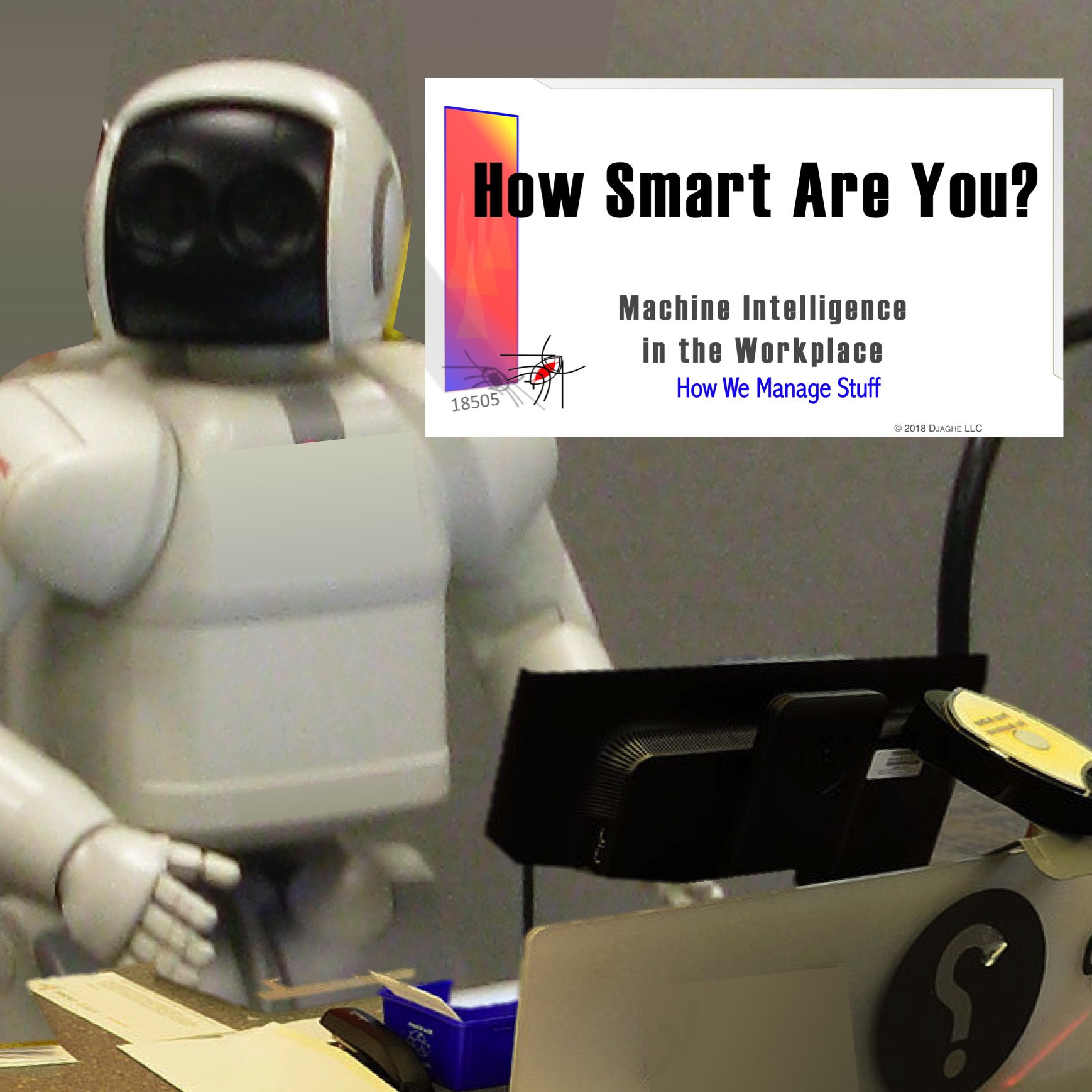
Are machines taking are jobs? Or perhaps more to the point, are you concerned that machines, smart machines, are poised to take your job?
With this episode, we start an examination of smart machines as a substitute for workers. We put it in the hands of our intern, Anna. After all, more of her career is likely to be taken by a machine than anyone else.
As always, we start with the big picture, the context for work. Just because a machine is capable of doing your work doesn’t mean that it makes sense for it to do your job. We start the series with a visit to an automated office, or more accurately, an office that we were told had been automated. Our cast doesn’t quite find what they expected, which gets us asking the question “How Smart Are You?”
[18505]
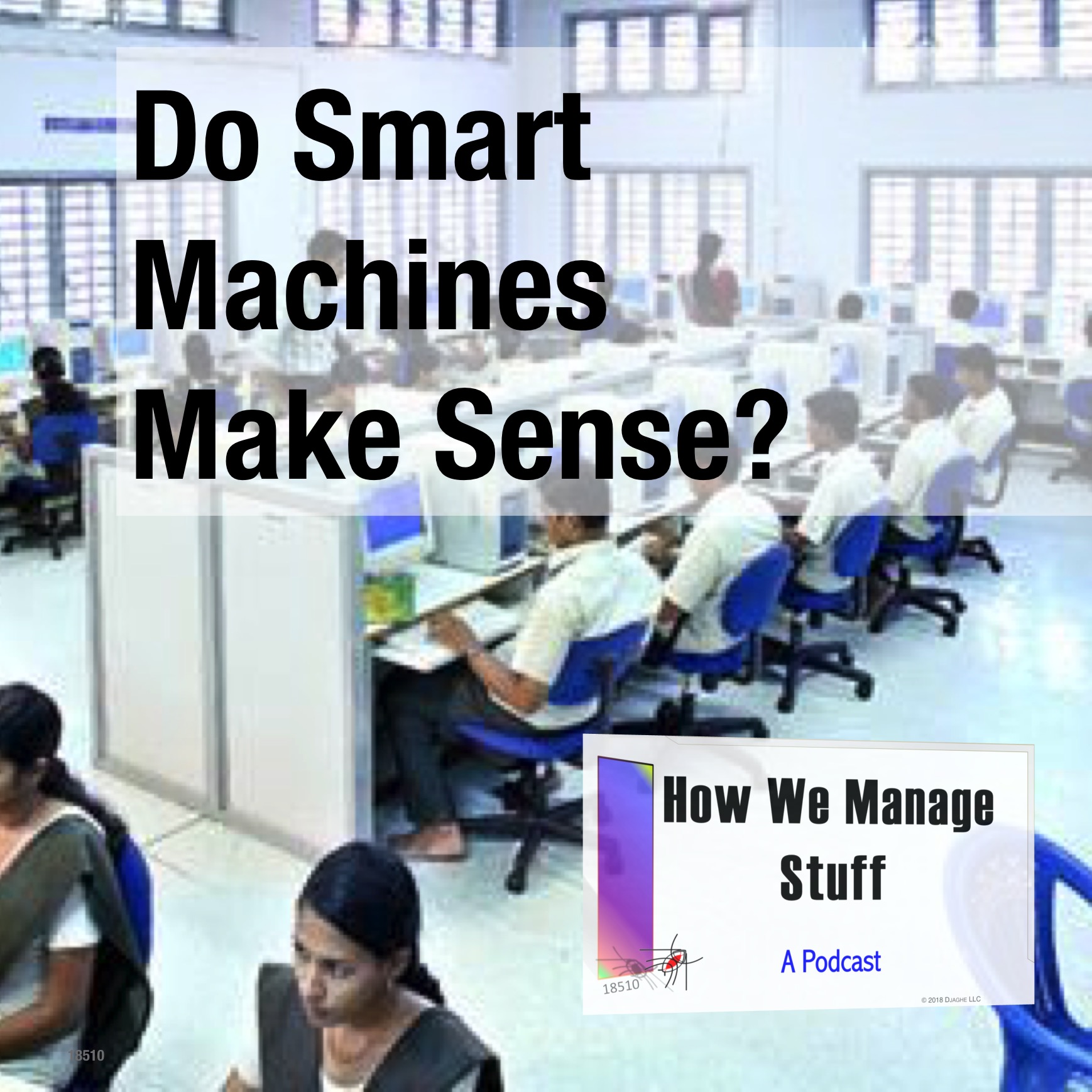
It’s rarely a direct replacement. Rarely do smart machines actually change the workplace as they were intended. It’s always a change to some side occupation, an occupation that you may not connect with smart technology. as
Our series on smart machines and work considers the contributions of John McCarthy, one of the founders of the field of Artificial Intelligence. McCarthy had grand plans for his work. He hoped to build a machine that could do the kind of logical reasoning that Euclid did for geometry. The question is, of course, “Was McCarthy’s  work a success?” but the answer is not measured by the parallel query “How many geometers did McCarthy put out of work?”
work a success?” but the answer is not measured by the parallel query “How many geometers did McCarthy put out of work?”
[18510]
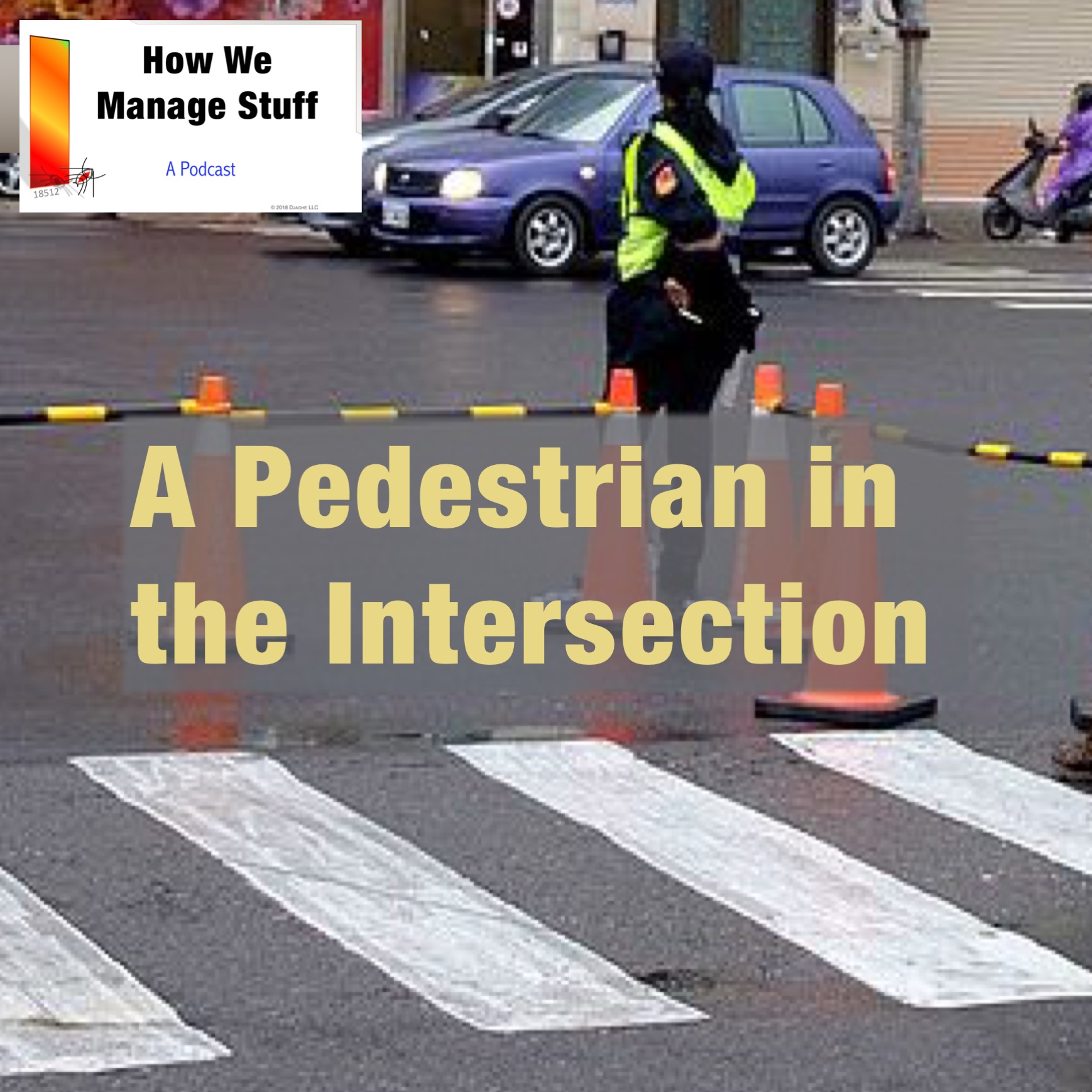
No audio results
A series on smart technology technology and autonomous vehicles is running when a self-driving Uber car goes astray. It probably does not mark the end of the technology. However it causes us to remember the true nature of what we are doing and how the public may not forever sustain its enthusiasm for digital products or its willingness to serve as the test subjects for new ideas.
Thoughts on the Tempe crash from the staff of How We Manage Stuff.
[18512]
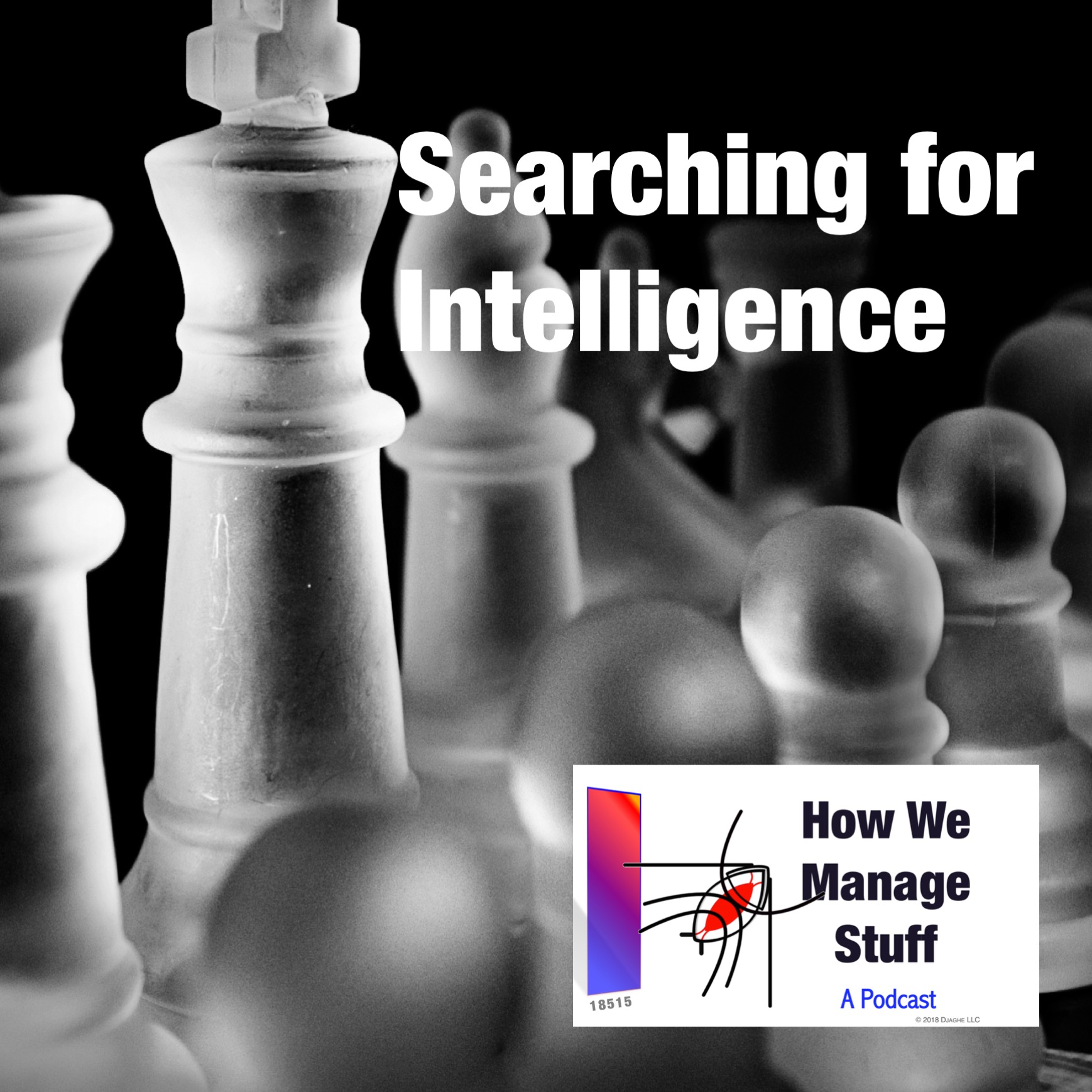
Do smart machines help us understand smarts? More important, do we learn something about intelligence by working with artificial intelligence? The results are mixed. Current researchers regularly argue that their work is inspired by their understanding of the brain but that claim still begs the question, “do these machines teach us about through?” Some of the more common forms of smart machines, so common we not longer think of them as smart, rely on various forms of search. And of course, we can ask, is searching smart, even when we find a good answer? Third in a series on smart machines hosted by Anna-the-Intern.
[18515]
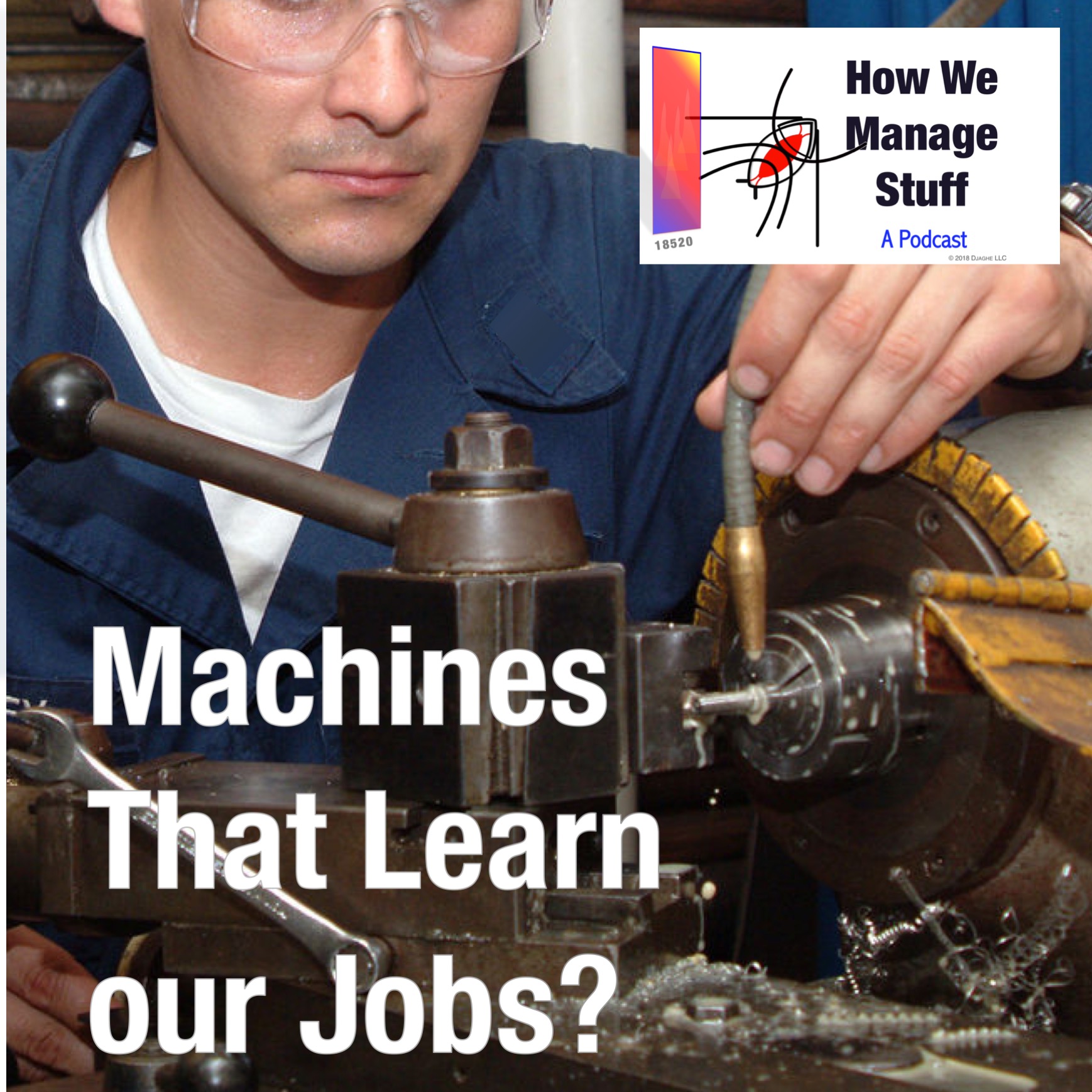
A metal lathe. A 40 year old clasp. A playlist of unfortunate songs. Most unfortunate. A suspicious relationship between Henry Ford and Thomas Alva Edison. All of these point to questions about what we know about our jobs and know that knowledge can be captured by machines. Deep learning. Big Data.
Capturing what we know. A new thing, right? Is it only the new generation, the millennial who squint into the future with the gloaming dread that there will be nothing for them in the future? Nothing at all?
The answer is “Not quite.” Those with the greatest fear of automation and smart machines are those at the end end of their careers, not at the start. Those that realize that their skills will not survive them. Furthermore, one quality of work makes it possible to capture knowledge, the fact that we tend to do jobs in sequence, that we have a set of steps that we follow to get things done.
To protect yourself, do you need to be good at things that are done out of order? That wander from task to task? So we ask in our story about captured knowledge.
[18520]
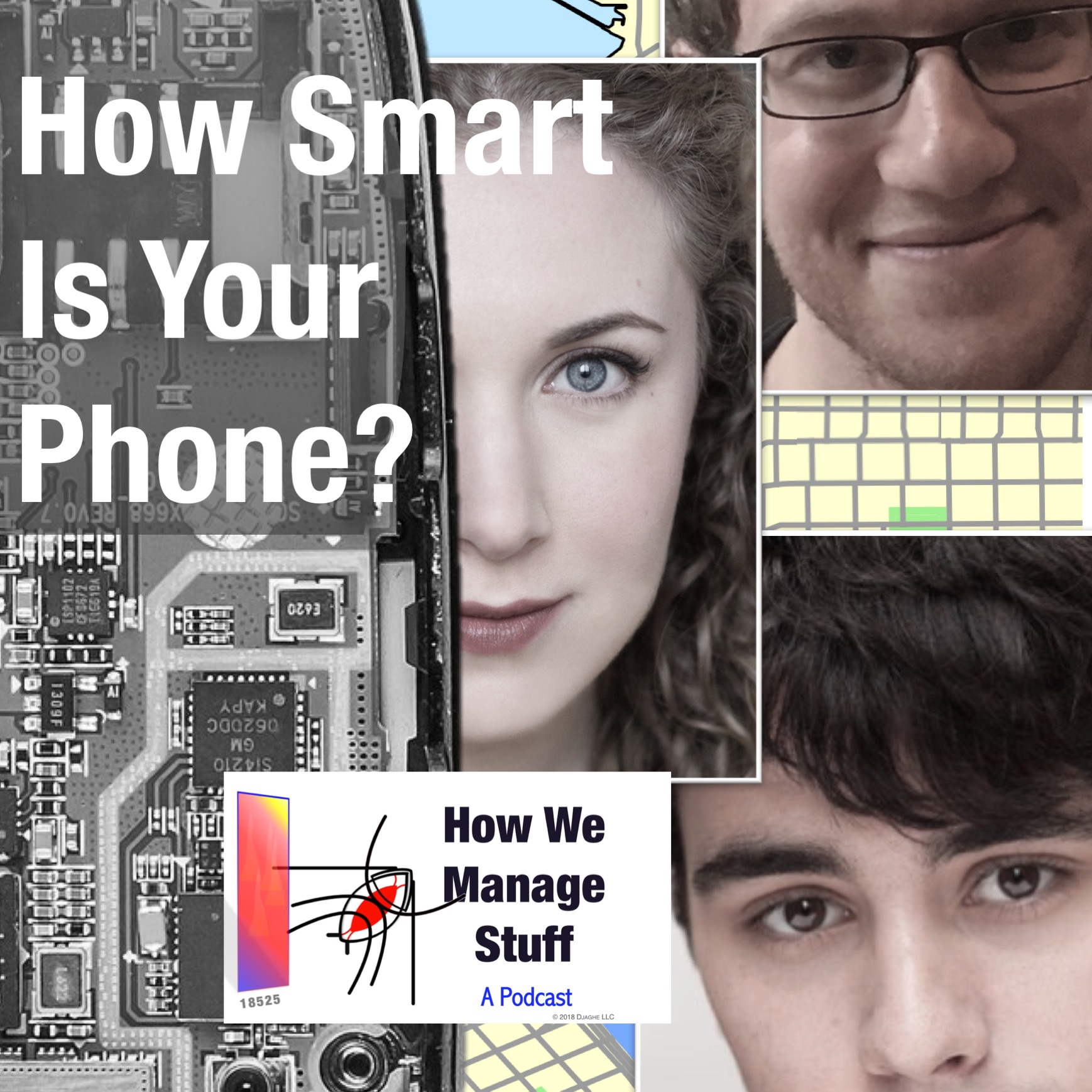
It’s not a question of smarts. It’s a question of how it got that way. A lot of the smart apps are fairly straight forward – classic computing ideas repackaged in a clever case. You start taking the p hone apart and you a lot of ideas that aren’t that clever experience t for the effort that it took to get them into that little case.
So we ask the question “How?” And of course, Anna has her ideas. Maybe she’s right. Maybe she’s not. But someone had to decide why the map app was important and why it was smart.
Anna and her crew take apart the smartphone as part of her series on Artificial Intelligence.
[18525]
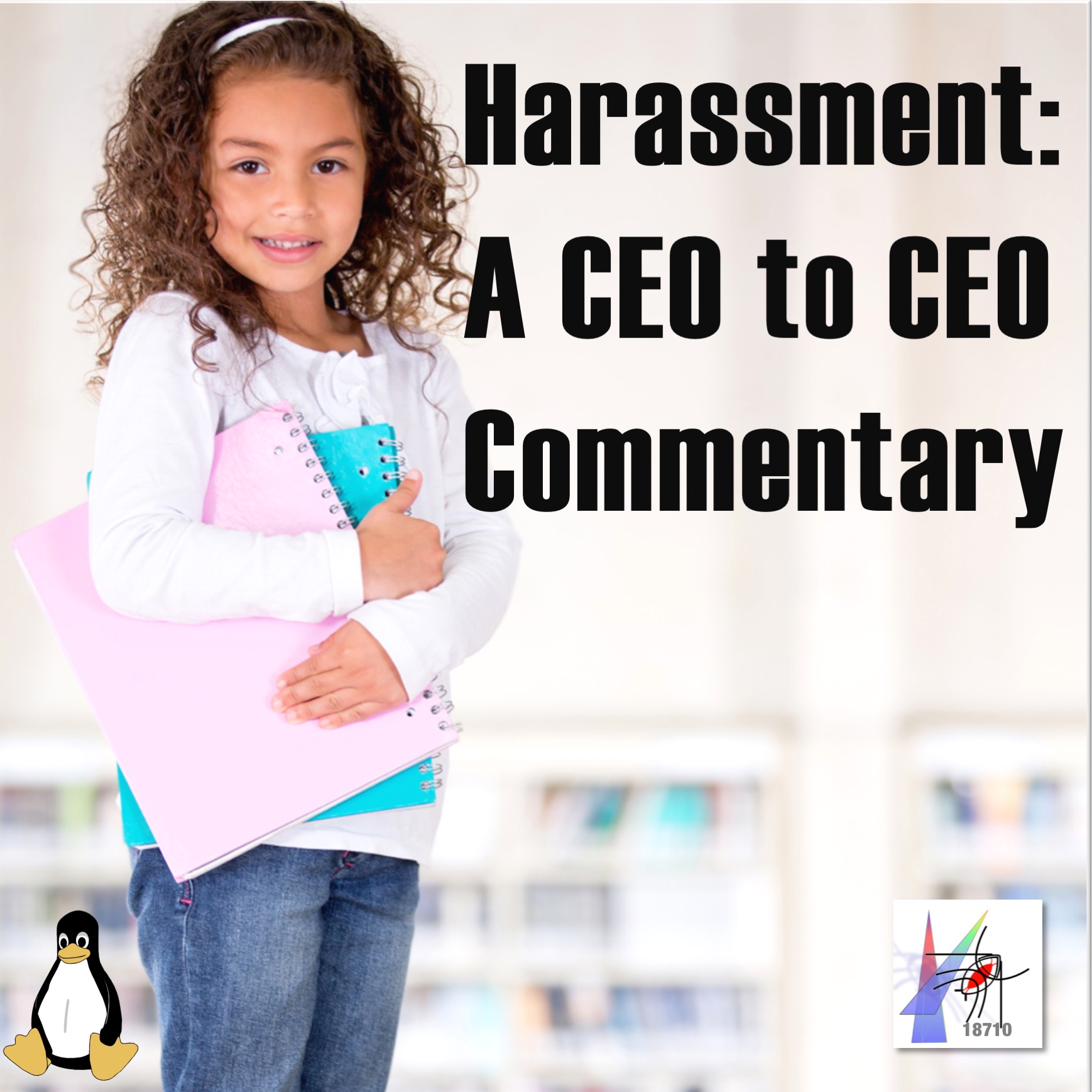
In an invited commentary, the CEO of Embisivile Frien’ addresses the problem of harassment. It is a general problem that needs to be addressed in the tech industry but it is a specific instance that Madison wishes to discuss.
[18710]

You think that buying Bitcoin is a grownup thing to do?
Really?
Meet Maddie, the 8 year old entrepreneur who will tell you otherwise.
Maddie is played by Zoe Anastassiou, one of the most flexible members of the cast. Zoe has played executives, teachers, moms. But Zoe Anastassiou is most commonly identified as an eight year old girl who believes – knows – that is the rising light of the next generation of tech business leaders. In this episode, she talks about that character, Maddie-the-Entrepreneur, and what it means to bring her to life.
Cast:
We live in an age that confuses the act of being daring with the act of being impolite.
Furthermore, it excuses threatening behavior by claiming that it was merely impoliteness.
Merely impolite. Another leader, this time from the technology world, has succumbed to these moral confusions to respond to this news, we asked our 8 year old CEO to prepare a commentary.
[18710]